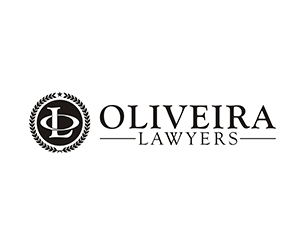Getting Fair Compensation For a Traumatic Brain Injury
Brain injuries are extremely serious and unfortunate only for almost a third of injury deaths in the United States. After experiencing a traumatic injury, a person has the right to fair compensation for a life-changing accident.
Contact Us Now
[email protected]
212-300-7174
Schedule a Free Consultation!
Causes of Brain Injuries
When a person experiences a brain injury, the skull and brain have suffered trauma and the brain can lack oxygen flowing into it. Several common scenarios lead to a brain injury:
- Malpractice
- Falls or falling objects
- Accidents related to work and commuting
These scenarios can involve blunt force trauma to the head, damaging the skull and the brain. The unfortunate thing is that the trauma to the head could cause other problems depending on the severity.
The Effects of Brain Injuries
There are some common symptoms associated with brain injuries, and a few of them the injured pedestrian will not experience right away. Some common symptoms are:
- Blurred vision
- Changes in sleep pattern
- Dizziness
- Loss of consciousness
- Nausea
- Vomiting
- Fatigue
- Sensitivity to light and/or sound
What also needs to be understood is that is normal for those who have suffered brain injuries will go through behavioral and emotional effects. The injured individual may not even be able to control the behavioral and emotional effects they have from their brain injury.
Some emotional and behavioral effects of brain injuries include:
- Depression
- Self-centered attitudes
- Verbal outbursts
- Intolerance
- Impulsiveness
- Poor judgment
- Lack of empathy
- Lack of motivation
- Physical outbursts
Brain injuries are likely to have long-term physical effects. In some pedestrian accidents, those injured have developed health problems such as Parkinson’s disease, Alzheimer’s disease, and epilepsy.
Filing a Claim
To get rightful compensation, a claim needs to be filed for personal injury. Typically claims are filed by the injured individuals, but can also be filed by the parent, spouse, or other relatives if the injured person experienced a wrongful death.
Time restrictions of when claims can be filed vary by state. It is best to file a claim immediately after an injury. Some immediate steps should be taken to ensure there is a solid claim in place.
Contact Us Now
[email protected]
212-300-7174
Schedule a Free Consultation!
What to Do Immediately
Medical attention is the number one priority when an accident occurs. A severe injury to the brain involves immediate treatment due to the lack of oxygen the brain could not be receiving. The longer the brain goes without oxygen, the more permanent damage the injury could result in.
The medical documentation diagnosing your injury and treatment will be key evidence in your claim. In addition to medical records, pictures should be taken of the scene of the accident and the injury. Gathering as much evidence as possible will only strengthen your claim.
Liability
Since different scenarios can lead to brain injury, the person liable is different in every case. Some examples of liable people based on common scenarios are:
- A driver if they hit collide with a victim
- A doctor who injured someone from malpractice
- Getting hurt performing a job
- An individual who assaulted another
- A manufacturer who created a defective product that resulted in an injury
- Consulting a lawyer can help determine exactly who is liable for the injury.
The Right Attorney
A personal injury attorney is a more appropriate lawyer to hire for a brain injury claim. However, the most important thing is that the attorney has experience in brain injury cases specifically. Also, it’s important to know if the attorney has been on the plaintiff’s or the defendant’s side of these cases.
Settlement or Trial
Personal injury cases are usually settled out of court. Negotiation can take place where the defendant makes an offer to the plaintiff for damages. If the injured party accepts the offer, the case can be resolved and the plaintiff can receive their compensation much faster.
Sometimes the offer on the table is not at the plaintiff’s and attorney’s standard, and the case can go to trial. The defendant may dispute the claim and not accept liability, then the case wi;l have to go to trial as well.
Trials have to be scheduled and could be months to a year ahead. Sometimes they may go in front of a jury, but ultimately the award amount of the plaintiff is determined by the court since mediation did not resolve the case.
Compensation
Payouts for brain injuries are relatively high due to the severity of damages a brain injury can cause. It is common for a plaintiff to receive anywhere from five to seven figures in a settlement for a brain injury. The costs of brain injuries can add up significantly over time:
- Loss of income
- Loss of consortium (spouse claim)
- Medical costs (present and future)
- Physical therapy or rehabilitation
- Pain and suffering
- Nursing/Home Health Care
- Adaptive equipment
- Modifications to home to accommodate disabilities
- Therapy and counseling
- Upon receiving compensation, medical costs are deducted as well as lawyer fees. The payout is not taxed and the remaining lump sum belongs to the victim.
Brain injury is very severe in most cases and people deserve their justice. If ever you or your loved one has suffered a brain injury, don’t hesitate to reach out to Oliveira Law to get your claim started.


